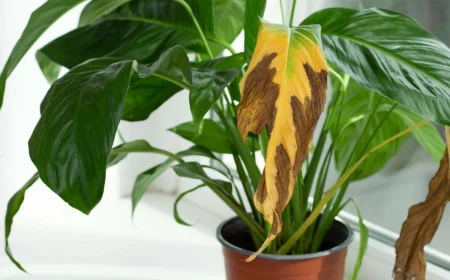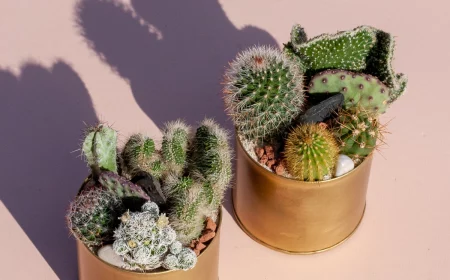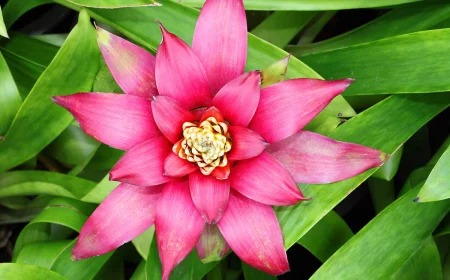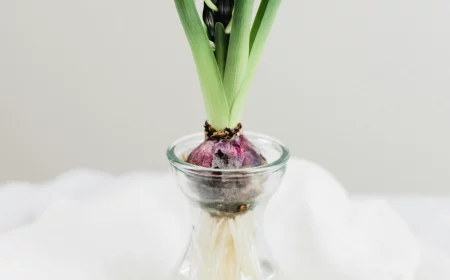Don’t Let Frost Ruin Your Garden: A Pro’s Guide to Keeping Plants Safe

Learn to use indoor spaces, fabric drapes, cloches, mulch, and cold frames to shield your garden from the cold, ensuring your plants' survival and health during the chilly seasons.
I’ll never forget the sting of an unexpected frost—not just the cold, but the cost. Early in my career, I was managing a big landscape project, and we had these gorgeous, tender perennials that were still blooming their hearts out late into the season. The client was over the moon. Then, the forecast called for a clear, calm night. I was younger then, a bit too sure of myself, and figured we’d be fine.
In this article
The next morning was a painful lesson. Every one of those vibrant plants was a sad, blackened pile of mush. The air had that sharp, specific smell of frozen plant tissue. It was a humbling and expensive reminder that when it comes to gardening, you have to respect the weather. Frost isn’t just about cold; it’s about science, and having the right game plan.
Since then, I’ve learned how to read the sky and the soil to protect valuable plants. It’s not about one magic trick. It’s about understanding what’s really happening and choosing the right tool for the job. So, let’s get your garden ready.

First, Why Does Frost Even Happen?
Before you can fight it, you have to know your enemy. Frost can show up even when the weather app says it’s above freezing. It all comes down to two main types.
One is the kind everyone thinks of: a Wind-Borne Freeze. This happens when a big, cold air mass barrels into your area, driven by wind. Temperatures plummet below 32°F (0°C) and stay there. Honestly, this is a tough one to fight, and your best bet is protecting your most vulnerable plants and making sure roots are insulated.
The other, more common and sneaky type, is Radiation Frost. This is the one that catches people off guard. It happens on cool, clear, and calm nights. As soon as the sun goes down, the ground and everything on it (including your plants) starts radiating its heat back out into space. With no cloud blanket to hold that warmth in, the surface of your plant’s leaves can drop below freezing, even if the air just a few feet up is 38°F. This is the frost we can absolutely outsmart.

The real damage happens when ice crystals form inside the plant’s cells, rupturing the cell walls. That’s what turns a beautiful flower into that black goo I saw all those years ago. Ouch.
Your Last-Minute Frost Action Plan
Okay, you see a chilly night in the forecast. What’s the trigger point for action? It’s not just one temperature. Here’s a simple breakdown I use:
- If the forecast is 36-40°F (2-4°C): This is the “be alert” zone, especially if it’s a clear, calm night. Your main job here is to move potted plants. Their roots are way more exposed than plants in the ground. Group them together against a south-facing wall or under a porch roof. This simple step can make a huge difference.
- If the forecast is 32-35°F (0-2°C): Time for action. This is when a light radiation frost is very likely. Move all pots to a sheltered spot and cover your most tender in-ground plants (think annuals, vegetable seedlings, and anything borderline for your zone).
- If the forecast is below 32°F (0°C): This is a hard freeze warning. All hands on deck. Bring potted plants into an unheated garage or shed (not the warm house, as the shock can be bad for them). Use heavy covers on any vulnerable landscape plants you can’t move.

Choosing Your Armor: The Best Covering Methods
When a radiation frost is coming, the goal is to trap the heat the earth is releasing. But what you use to cover your plants matters. A lot.
The Pro’s Choice: Horticultural Fleece
This stuff is fantastic. It’s a lightweight fabric that lets light and air through but traps heat. You can find it at any garden center or online, and a good roll might cost you between $20 and $40, but it’s reusable for years. It comes in different weights—the lighter 0.5 oz stuff feels like a heavy-duty dryer sheet and is perfect for a light frost. The heavier 1.5 oz fabric feels more like a thin blanket and can give you up to 8°F of protection, which is critical for a hard freeze.
Household Items That Work in a Pinch
Old sheets and blankets are great insulators. The downside? They’re heavy and can crush plants if you don’t support them. They also get waterlogged from dew, so you HAVE to take them off in the morning. For smaller plants, you can’t beat free stuff like overturned buckets, cardboard boxes, or plastic totes. They work like a charm.

A critical warning about plastic sheeting: Never, ever let plastic touch your plants. I learned this the hard way on a prized Japanese maple. Plastic is a conductor, not an insulator. Any leaf it touches will get colder than the surrounding air and freeze solid. If you must use plastic, you have to build a frame to hold it well above the foliage.
The Right Way to Cover a Plant (The No-Crush Method)
Don’t just throw a blanket on top. You’ll trap heat, but you might also snap branches.
1. First, place a few bamboo stakes, a tomato cage, or even lawn chairs around the plant. Make sure they’re taller than the plant itself.
2. Drape your cover over the stakes, not directly on the plant.
3. Most importantly, make sure the cover reaches all the way to the ground and secure the edges with rocks or bricks. This traps the radiant heat coming up from the soil. A cover that’s open at the bottom is almost useless.

And remember to uncover them in the morning! You don’t want them to cook in the sun.
Long-Term Defense: Mulch and Smart Placement
For getting through a whole winter, you need a more passive strategy. It starts with identifying your yard’s microclimates. The spot right against a south-facing wall will be your warmest zone, while a low-lying area will be a natural “frost pocket” where cold air settles. Plant accordingly!
And then there’s mulch. The main job of winter mulch isn’t to keep the soil warm, but to keep it at a stable temperature. It insulates the ground from the freeze-thaw cycles that can literally push plants out of the earth. Apply a 2-4 inch layer of straw, shredded leaves, or wood chips after the first hard frost but before the ground freezes solid.
Heads up! The most common mistake I see is piling mulch up against the stem or trunk of a plant. This “mulch volcano” invites rot and pests and can kill the plant. Always pull mulch back a few inches from the base of the plant to let it breathe.

Oops… What to Do After a Frost Gets You
So, you missed the forecast or the frost was worse than you expected. You walk outside to see blackened, mushy leaves. The temptation is to grab your pruners and cut off all the ugly bits right away.
Don’t do it!
As ugly as it is, that damaged foliage is now protecting the stems and buds below it from the next frost. Wait until you see new growth emerging in the spring. Once it’s clear what’s truly dead and what’s alive, then you can prune. A little patience here can literally save your plant.
Galerie d’inspiration


Purpose-Built Frost Cloth: Lightweight, breathable fabrics like Agribon or Planket are the gold standard. They allow air, water, and sunlight to penetrate while trapping radiant heat from the soil. They come in different weights; a 1.5 oz/sq. yd. fabric can offer up to 8°F of protection.
Household Sheets & Blankets: A bedsheet or cotton blanket can work in an emergency for a light frost. However, they block all light and must be removed first thing in the morning. Avoid plastic sheeting that touches the foliage, as it will transfer the cold directly to the leaves, causing more damage.
For serious gardeners, a roll of proper frost cloth is a worthwhile investment for its efficiency and plant-safe design.
The morning after a frost, my plants look terrible. Should I prune the damaged parts immediately?
Resist the urge to clean up! As unsightly as those blackened leaves and stems are, they serve a crucial purpose. This damaged foliage acts as a natural layer of insulation, protecting the healthier parts of the plant below—like the crown and lower stems—from any subsequent cold snaps. Pruning too early can also encourage new, tender growth that is extremely vulnerable to the next frost. The best strategy is patience: wait until all danger of frost has passed in the spring before cutting anything back. Only then can you accurately assess the living tissue and prune for healthy recovery.










